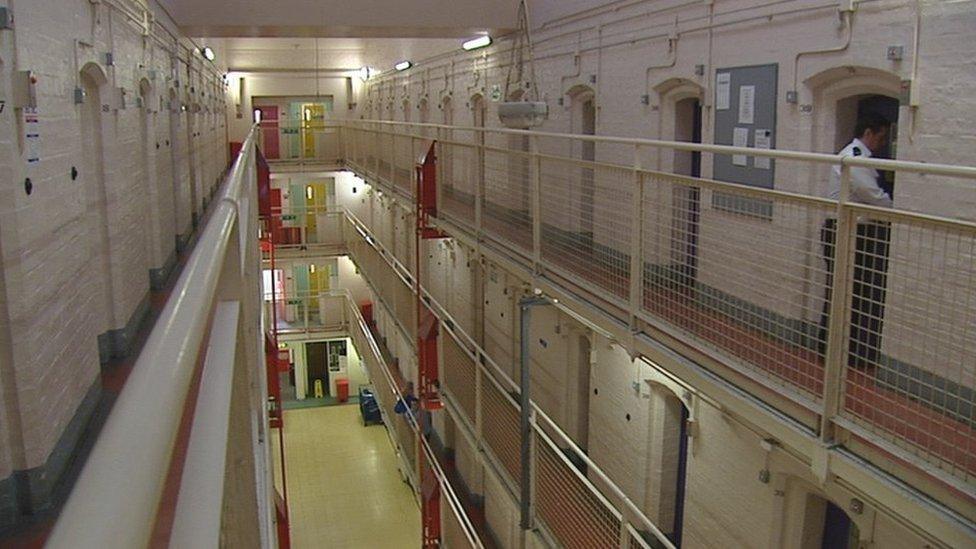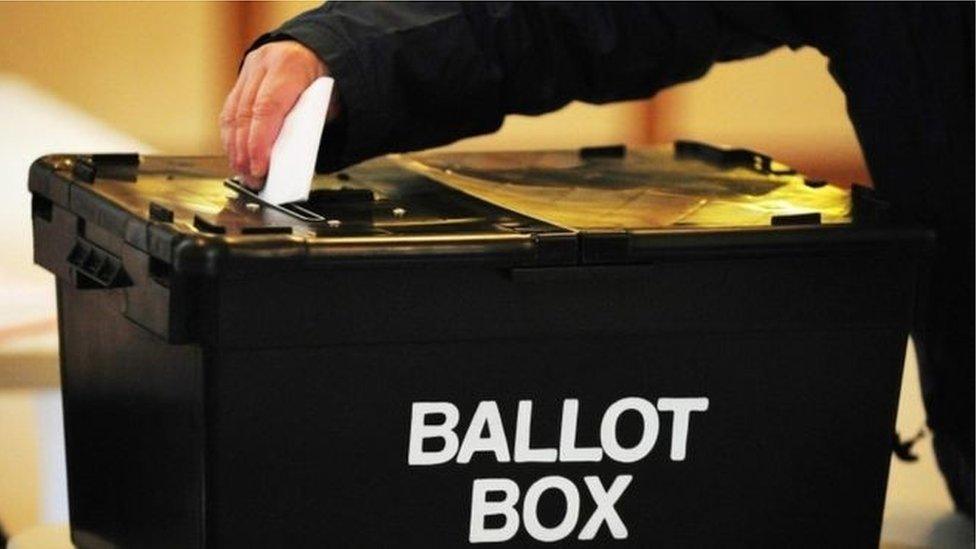MSPs support ending ban on prisoners voting
- Published
- comments

Only prisoners on remand and those on a tag serving a sentence in the community are allowed to vote in Holyrood and local government elections.
Prisoners serving custodial sentences should be given the right to vote, a committee of MSPs has said.
A majority of Holyrood's equalities and human rights committee said the current ban should be lifted.
Its report said not being able to vote might impact negatively on an individual's rehabilitation.
The two Conservatives on the committee opposed the move and the Scottish government said it had no plans to allow prisoners the vote.
In its 34-page report, the committee said it felt that, on balance, denying prisoners the right to vote did not serve the interests of society, prisoners' rehabilitation or democracy.
Compromise announced
A court in Strasbourg ruled in 2004 , externalthat a blanket ban on British prisoners exercising the right to vote contravened the European Convention on Human Rights (ECHR).
But in 2017 the UK government announced a compromise, which satisfied the court, allowing a limited number of convicted prisoners the vote.
Committee convener Christina McKelvie said prisoner voting was a fundamental issue which struck at the heart of questions such as the purpose of prison and the rights and responsibilities of a citizen.

She said: "After careful consideration of this issue, we, as a cross-party committee, have come to a conclusion that the current ban should be lifted, and the right to vote be restored to all prisoners.
"We are acutely aware that prison is a place people go to be punished, and that there will be individual cases people find distasteful; but we need to think about rehabilitation, and not further excluding and alienating people from society."
Currently prisoners on remand awaiting trial are allowed to vote, as are those serving a sentence but on a tag in the community.
The committee said the ban on convicted prisoners having the same rights was illogical.
Community sentence
The report said someone sentenced to prison in Scotland in June 2014 would have been excluded from voting five times by the end of June 2016, while someone who had committed a similar offence but who received a community sentence would have been able to vote on all five occasions.
Other prisoners jailed for the same crime over many other two-year periods would have missed no votes because there would have been no elections.
The two Conservatives on the committee, Jamie Greene and Annie Wells, dissented from the majority report but welcomed wider consultation by the Scottish government on the issue.
Ms Wells said: "My concerns are we're going to be given those who've committed the most serious of crimes in society the right to vote, like murderers, rapists and paedophiles.
"There is no appetite out there for it, and the first minister has said herself in the past 'if you've done a crime that means you lose the right to vote', and I believe that to be true."
The Scottish government said it had no immediate plans to move to change the law.
'Range of issues'
A spokesperson said: "This is a report which covers a broad and detailed range of issues. As with all parliamentary reports we will consider it carefully and provide a formal response to the committee in due course."
The UK Parliament retains the right to amend electoral law but in 2016 it devolved the regulation of Holyrood and Scottish local government elections to MSPs.
But the Scotland Act also introduced "super-majorities" for passing bills relating to protected subject matters, including who is entitled to vote for membership of the Scottish Parliament.
This would mean at least two-thirds of the total number of seats of the parliament - 86 - would have to vote in favour of any measure to change the franchise, rather than a majority of MSPs present in the chamber.
The Scottish Greens and the Liberal-Democrats support the idea of allowing prisoners to vote, but Labour said it had no position on the issue.
"It has not been discussed since 2014, and there are no plans to do so at the moment," a senior party official told BBC Scotland.
Of the 47 member states of the Council of Europe, the only countries other than the UK which operate a blanket ban on prisoner voting are Armenia, Bulgaria, Estonia, Georgia, Hungary and Russia.